One of the all-time great television series, and a cult favorite, is “The Equalizer,” which aired on CBS from 1985 to 1989. The show is about a retired American secret agent, who arrived on camera with a mysterious past. Named Robert McCall, he uses the special skills from his former career to help people who were confronted by danger, usually under the guise of a person (a former spy perhaps) or an entity (a rogue government) looking to exact revenge.
English actor Edward Woodward graced McCall with a cloak of elegance, and the program was noted for its sophistication. The new version of “The Equalizer,” currently on CBS, pales in comparison. Intelligence and wit take a back seat to simplemindedness and gunplay.
The third in a series of movies based on the original television show, which is unimaginatively titled “The Equalizer 3,” is now in theaters. Supposedly, this is the final chapter in the trilogy. The character of McCall is still the avenging angel, but the closest we come to a cosmopolitan aura is that he used to live in a big city.
Denzel Washington again plays the enigmatic McCall, who, because of a traumatizing experience, had essentially disappeared from his old life. In “The Equalizer” movie from 2014, he lives alone in a small apartment in a low-income section of Boston and works in a big box hardware store. He goes to his favorite diner to sip tea and read one of the 100 greatest books ever written. The film was extremely violent.
In “The Equalizer 2,” from 2018, McCall drove for a ride-sharing service, and there was more of an international flavor to the story. The violence unfolded at an extraordinary level.
With “The Equalizer 3,” the violence is stratospheric. Much of the patina that made the original television program so interesting slowly got chipped away in the first two films. With the third movie, director Antoine Fuqua and screenwriter Richard Wenk, who performed the same duties for the first two features, no longer seem to care that a patina existed.
McCall isn’t in Boston, and he’s no longer reading his beloved books. The film opens with a prologue in Sicily about which nothing is explained. Battered and butchered bodies are everywhere. A meat cleaver is highlighted.
For some reason, McCall is lurking in the shadows until he isn’t. A child shoots him in the back. Robert Richardson’s cinematography is dark and murky. McCall, a bullet still lodged in his back, rides on a ferry to the Italian boot and is helped by a kindly doctor (shades of “The Bourne Identity”). Eventually, he’s sipping his preferred tea in an out-of-the way village on the Amalfi Coast. It’s so off-the-beaten path that no tourists ever visit. The residents are kindly and folksy.
However, the Quaranta brothers — the older a vicious brutalizer and the younger a hot tempered punk — want a foothold in the place so it can used as a base for their dealing in pharmaceutical drugs, including to Amalfi tourists.
The brothers begin terrorizing the village with acts of violence that include burning down the fishmonger’s market. He doesn’t have his protection fee. A young policeman — the local Carabinieri — is beaten and threatened with unspeakable torture. His wife and little daughter are used as pawns in the turf battle: “They’ll be fine if you do what we demand of you,” he’s told.
Before the onset of the mayhem in the village, McCall is a calm and quiet figure. He chats with residents, drinks a lot of tea but rarely seems to eat (one dessert is part of a quiet joke), and ambles about the village like a kindly uncle. In fact, there is very little delectable Italian food shown. Briefly, some of the gang members scarf down some pasta pomodoro during one lull in the brutality.
This is not the sun-dappled Amalfi familiar from your visits or in photographs you’ve seen. There’s a bleak, portentous shroud over everything. Night scenes predominate. McCall doesn’t like what’s happening to the townspeople who’ve been pleasant to him and with whom he’s friendly.
His calm exterior belying nothing, these attacks on innocents have infuriated him. McCall goes into combat mode and silently declares war against the Quaranta brothers. We learn about deadly pressure points on the human body, and we watch the blood flow with new ways of killing people, as McCall takes on the thugs who’ve shattered the peace.
The audience becomes complicit in the action as it cheers on the benevolent killer, and McCall is one of the fiercest and cleverest killers you’ve encountered. We’ve lost the true sense of who the “equalizer” is. For action movie fans who delight in extreme, often uncomfortable, violence, director Fuqua and writer Wenk deliver the goods.
A subplot involves the C.I.A., which is represented primarily by a young agent named Emma Collins-Plummer. She’s in Italy to learn the tools of the drug interdiction trade. McCall enjoys her early amateurism, and he helps her out, thus causing her to become targeted by the Quarantas. This displeases him — to say the least — and serves to ratchet up the tension. Collins-Plummer is played by Dakota Fanning, who acted alongside Washington in 2004’s “Man On Fire” when she was 10 years old.
In addition to the three “Equalizer” movies, Fuqua also directed Washington in “Training Day,” for which he received the best actor Academy Award, as well as in the 2016 remake of “The Magnificent Seven.”
Washington plays McCall as a brooding, taciturn man. There are many moments when you watch him do nothing except stir the tea. You read his contemplation on his face. The film occasionally loses its thread as it rests for a few minutes before the next burst of action. As a character study it should have been stronger.
It’s clear that Fuqua and Washington prefer that McCall, who is always clad in dark clothing, be feared as a vigilante. They seem uninterested in the mechanics of the spy world and the elegance of the first television series. In their three “Equalizer” films, the specter of violence is what thrills them. Certain movie fans will avoid this choice of entertainment. Others will relish it.





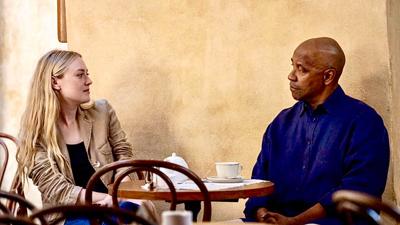


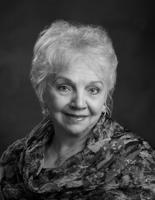

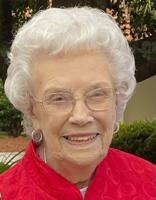
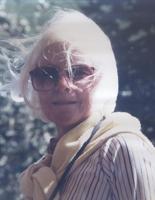
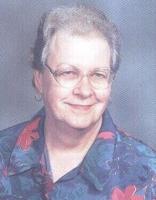
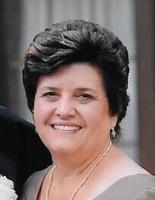






Commented
Sorry, there are no recent results for popular commented articles.